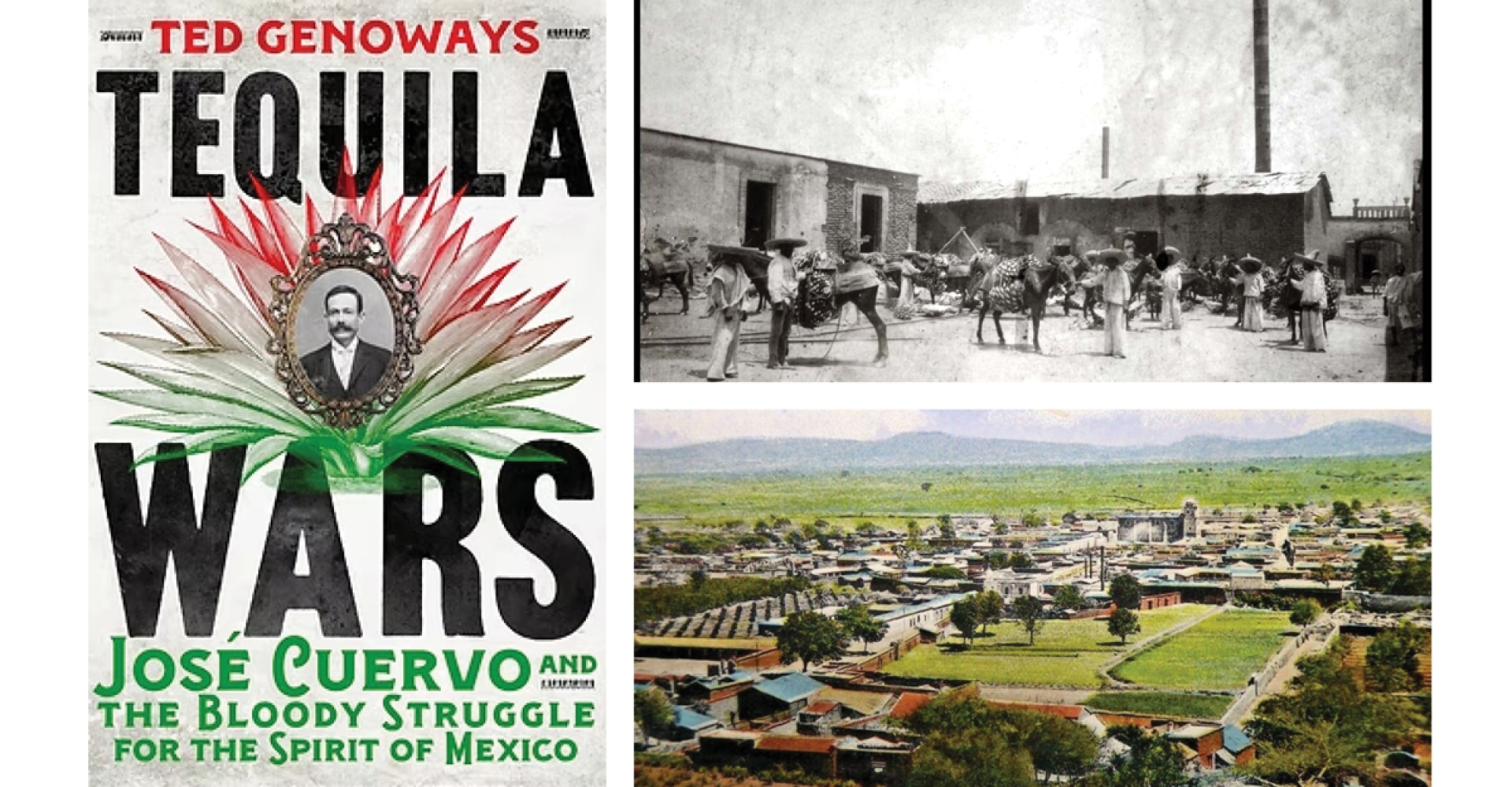

A new book brilliantly illuminates the life and history of Jose Cuervo — a true Tequila pioneer who even today inspires the company that bears his name.
In January of 1871, Malaquias and Florentino Cuervo, sorely disappointed by the Mexican president's breaking of his promise not to run for re-election (as prescribed in the constitution), decided to back an alternate candidate. That man, Porfirio Díaz, was not unknown to the citizens of the turbulent nation: About nine years before, on May 5th, 1862, Díaz had trounced the soldiers of Napoleon III at the first Battle of Puebla and then became Commander of the Mexican Army.
The date may ring a bell. Today that victory is celebrated every year—with music, gatherings, food, and, of course, a great deal of tequila. At the moment when his two uncles backed Díaz, José Cuervo himself—the person, not the brand—was not yet 18 months old. But the foundations of the storied distiller were quite literally already in place. José’s great-great-grandfather, José Antonio Cuervo, was appointed the leader of the Tequila Valley by the king of Spain in 1758 (and granted 35 acres on which to distill agave) kicking off more than 230 years of tequila-making history. La Rojeña, established in 1812—is to this day the oldest distillery in the Americas, and remains the main facility where the Mexican-owned and 11th generation family-run Jose Cuervo company continues to distill tequila.
José Cuervo would eventually take it over, though his path had few easy stretches. His many life-and-death adventures and those of his family are thrillingly told, in breathtaking detail, in a new book by Ted Genoways called Tequila Wars: José Cuervo and the Bloody Struggle for the Spirit of Mexico (W.W. Norton, 2025).
The double meaning in the title is, of course, intentional. From its earliest days, the business prospects for the agave spirit were entwined with the nation’s future. As the country waded through decades of revolutions and battles, the town of Tequila and its signature spirit (then known as vino mezcal) were key factors driving the building of railroads and the emergence of sensibly regulated commerce, both domestically and with the unpredictable neighbor to the north. As Genoways makes clear, José Cuervo himself, about whom vanishingly little was known until now, turns out to have been a canny businessman and entrepreneur, bringing together competing factions when necessary for positive governmental action and competing aggressively when that was required.
Along the way, Cuervo’s family-owned tequila holdings were burned to the ground, more than once. He endured violent conflict with other producers, regime changes, and agricultural challenges of every kind. His survival, and the brand’s prominence today, are as unlikely a tale as could be read.
“Tequila is deeply rooted in Mexican heritage and is a symbol of national pride and craftsmanship,” says Alejandro Coronado, current Maestro Tequilero at Cuervo. “There’s nothing like it in the world. There are fewer family-owned tequila companies now than there were even just a few decades ago, which makes it harder to do right by the spirit and protect its future.”
In a perhaps ironic twist, protecting the future of tequila has a lot to do with understanding its past. Even in the earliest days of tequila making, unsavory characters hoping to capitalize on the emerging spirit’s popularity attempted to dilute the spirit and promote inferior and even dangerous imitations. Then and today, José Cuervo held firm, ensuring quality traditional tequila through a painstaking process.
The brand’s core offering, Cuervo Tradicional Blanco, demonstrates this commitment, from harvest to shelf. It is the tequila that invented tequila. For this award-winning classic, the agaves are cooked for 36 to 40 hours in traditional masonry brick ovens, and then—at La Rojeña—are passed through roller mills in a four-step tequila making process to extract the juices. The final product contains just protected well water, yeast for fermentation, and hand-harvested agave. Just as it always has.
“Many people today do not even realize [Jose Cuervo] was a real person,” Genoways writes in an early chapter of Tequila Wars. “In fact, Cuervo was not just real; he was central, … a key figure in his nation’s most tumultuous and formative period.” He was an innovator, leading the way for the nation’s producers to begin selling their product in the U.S. “Above all,” one of his friends wrote, “he is an impeccable gentleman, a man of inherent kindness with a common touch that wins him widespread affection wherever he goes.” Which is to say—the ideal choice for a drinking companion.

